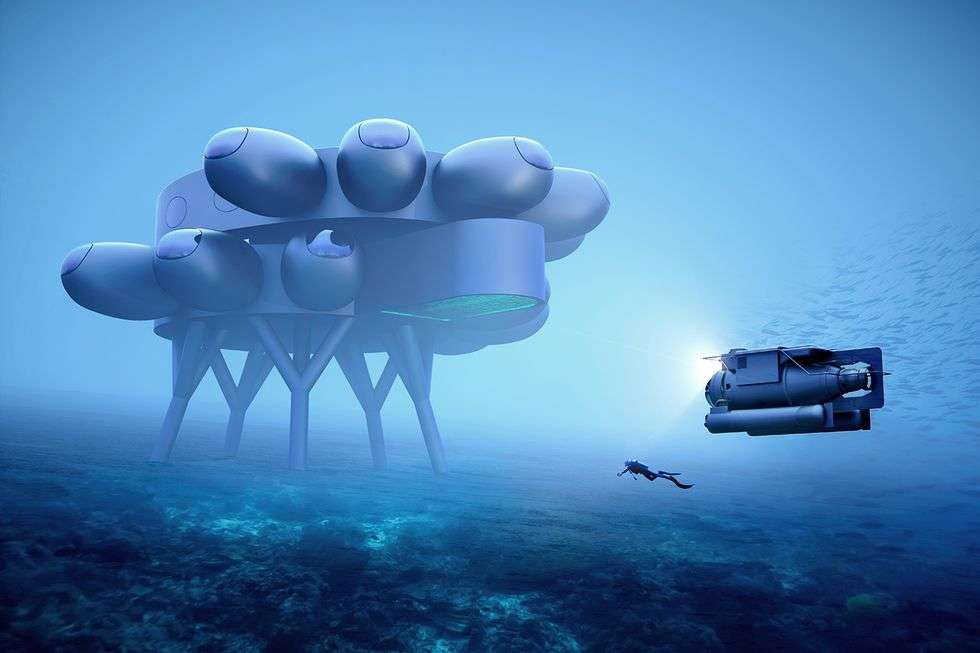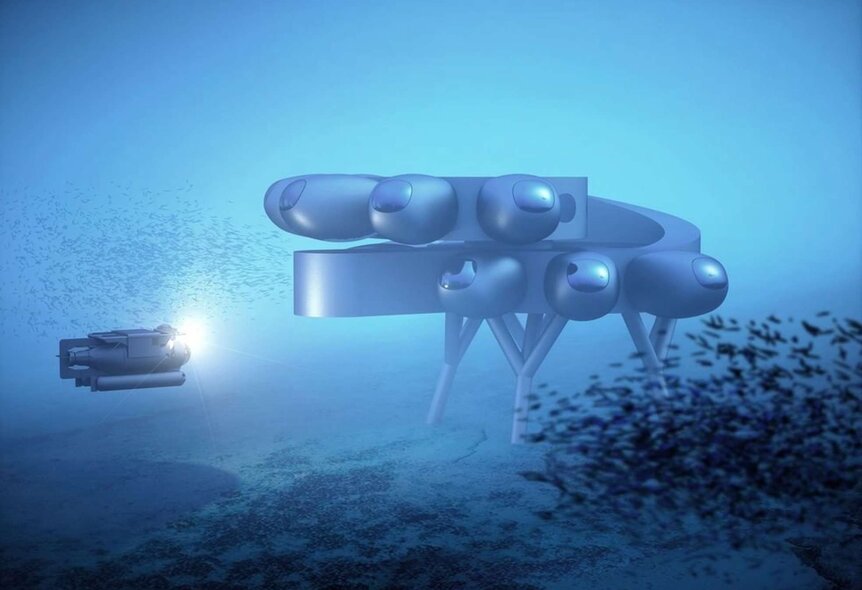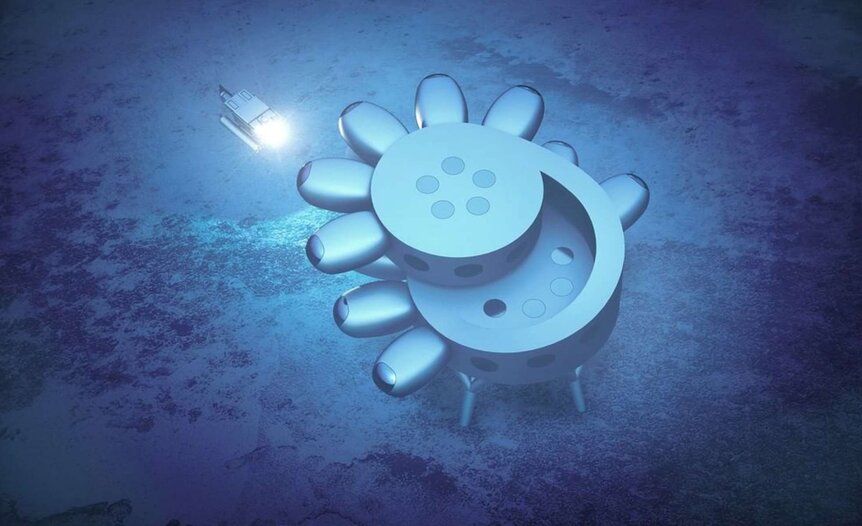Create a free profile to get unlimited access to exclusive videos, sweepstakes, and more!
Jacques Cousteau's grandson hopes to create an undersea International Space Station

Like something straight out of the animated TV series Sealab 2021, accomplished explorer and environmentalist Fabien Cousteau — son of legendary marine biologist Jacques-Yves Cousteau — is teaming up with Northeastern University to build the world's largest underwater laboratory. Kind of like the International Space Station, but in an aquatic environment.
Officially named Proteus, after the prophetic Greek sea god, the lab's plans are being finalized to construct a comprehensive habitat 60 feet below the waves near the island of Curacao in the Caribbean. At this depth engineers are hoping to decrease the amount of diver topside time and diminish the degree of health hazards due to the lethal effects of nitrogen narcosis and the bends.
Fabien Cousteau has calculated that bringing to life this ambitious aquatic habitat and providing operational costs for three years will carry a price tag of approximately $135 million — a lofty sum he is currently attempting to raise. So far, partners involved in the visionary project include Northeastern University, Rutgers University, and Caribbean Research and Management of Biodiversity Foundation, a non-profit organization headquartered in Curacao.
"As our life support system, the Ocean is indispensable to solving the planet's biggest problems," Cousteau explained in a press release. "Challenges created by climate change, rising sea levels, extreme storms and viruses represent a multi-trillion-dollar risk to the global economy. Proteus, contemplated as the first in a network of underwater habitats, is essential to driving meaningful solutions to protect the future of our planet. The knowledge that will be uncovered underwater will forever change the way generations of humans live up above."
Designs for this fantastic underwater research station and habitat were revealed last week by Cousteau and Swiss industrial designer Yves Béhar. Concept art depicts a 4,000-square-foot modular lab named Fabien Cousteau's Proteus, which will comfortably house up to 12 scientists during their stay. Its main objective is to become an international gathering spot for medical research, engineering experiments, studying global food sustainability, and the long-term consequences of climate change.
Proteus' power supply will be obtained via the sun, wind, and ocean. The station will also showcase an amazing underwater greenhouse, where aquanauts will grow plants for their nourishment needs. Construction blueprints feature a two-story circular building with multiple bubble-like modular pods that can function as labs, medical bays, dormitories, video production facilities, bathrooms, leisure areas, life support systems, and storage units. A separate pod acts as a moon pool for a range of submersibles to conveniently dock at.
“If it gets built, and I truly hope it does, it will be transformative,” declares Mark Patterson, associate dean for research and graduate affairs in Northeastern’s College of Science. “It really will be like the International Space Station at the bottom of the sea.
"Aquarius on steroids — that’s what Proteus is envisioned to be; a true underwater laboratory. So there would be PCR machines to do DNA sequencing and fully functioning laboratories to look at plankton or microplastics. Or an engineering lab so that if you were working with underwater robotics, or new methods of harvesting energy from the ocean, or aquaculture, that you have the tool you need right there.”




























